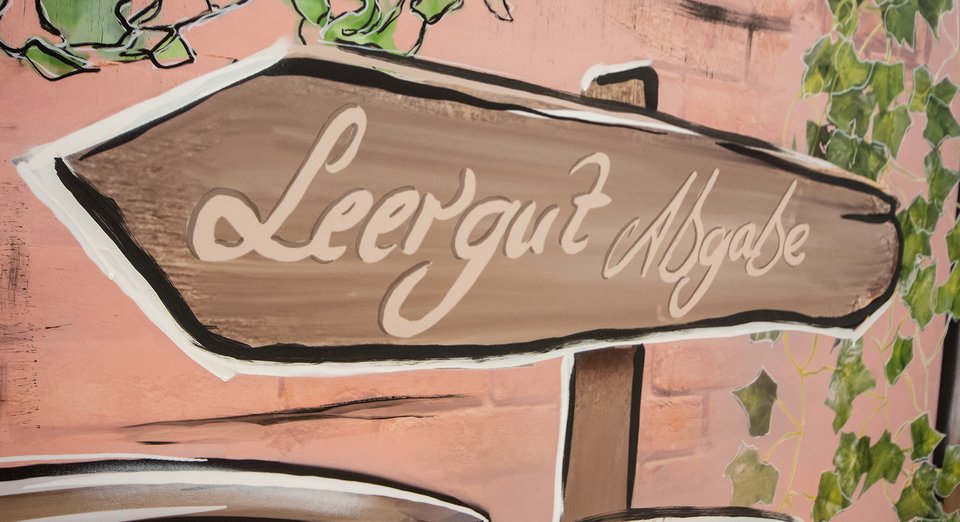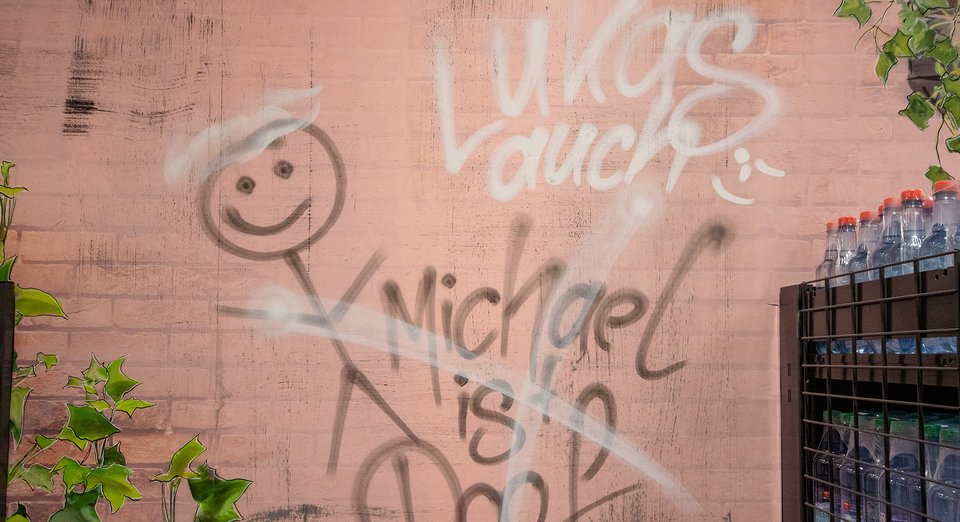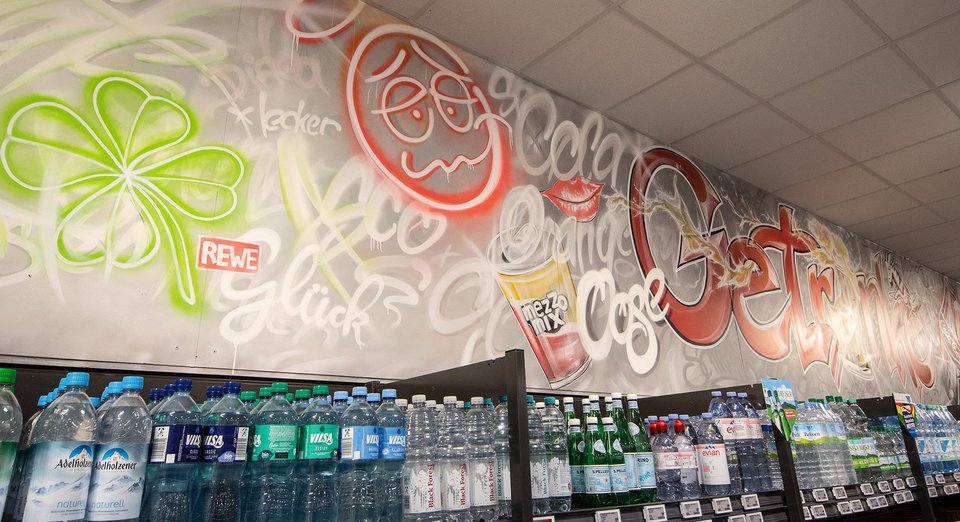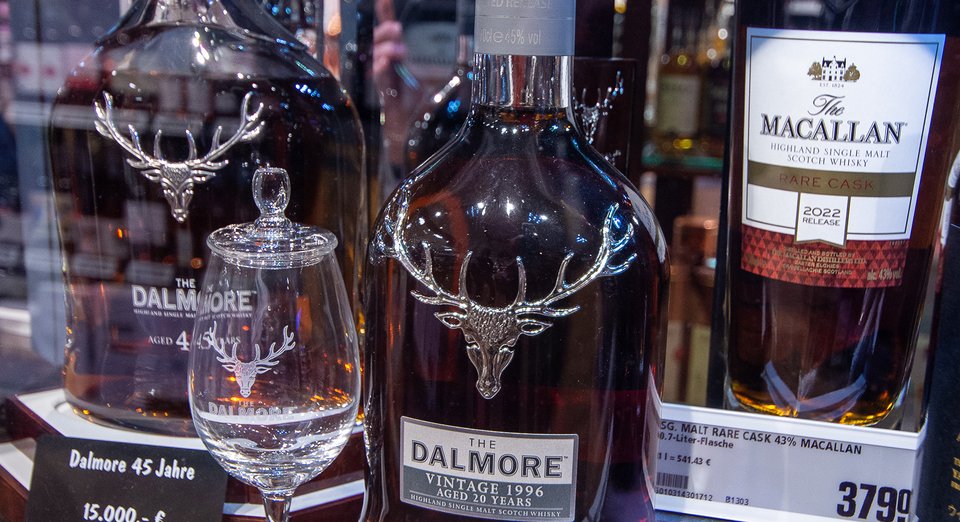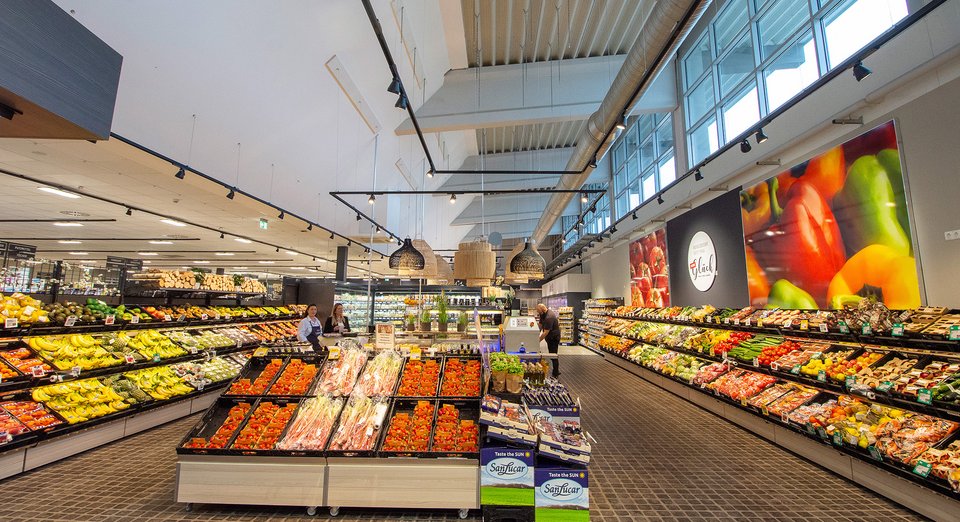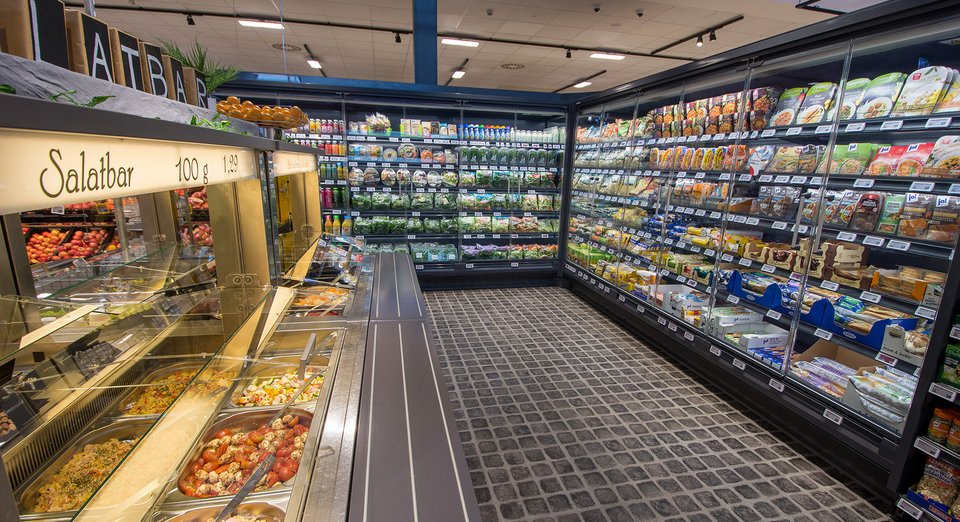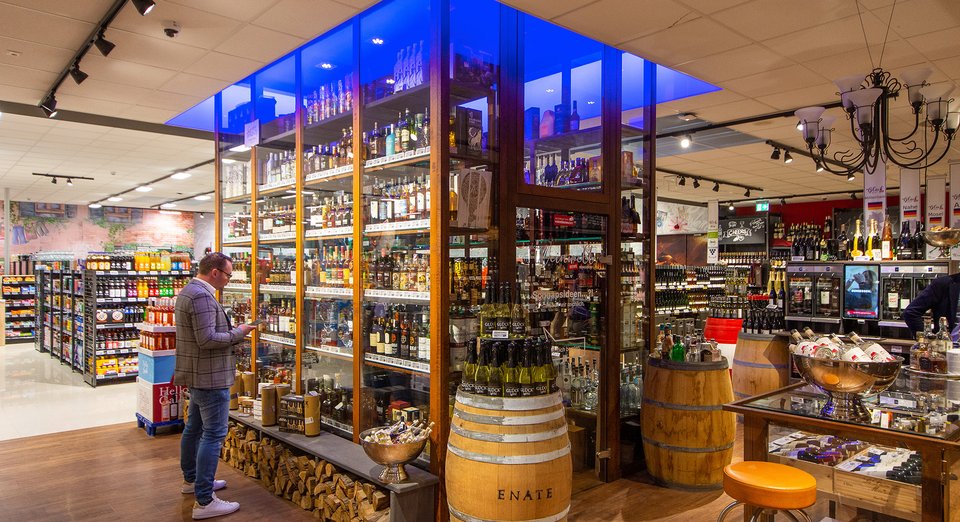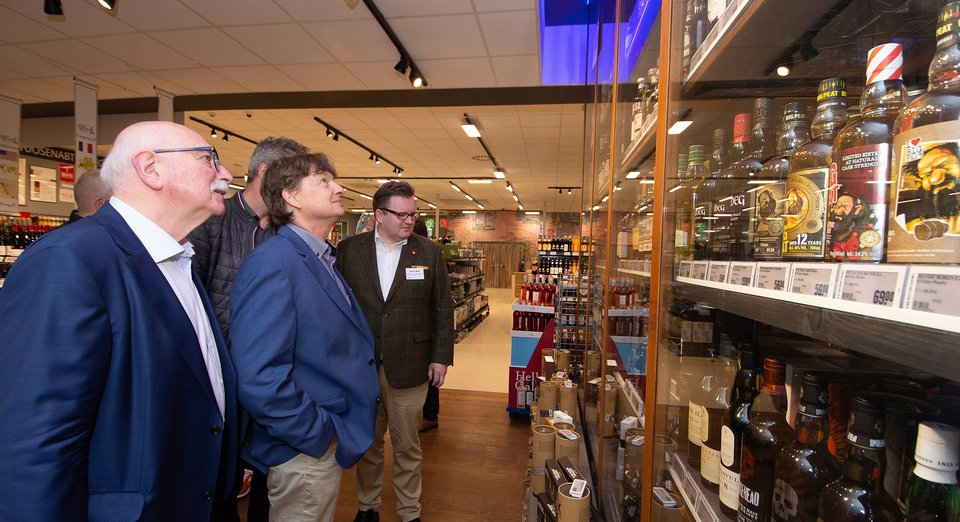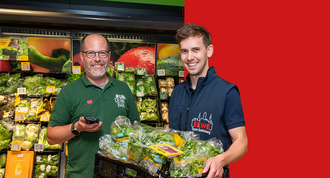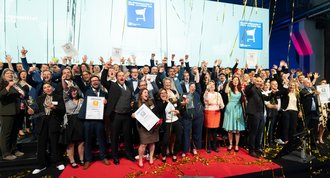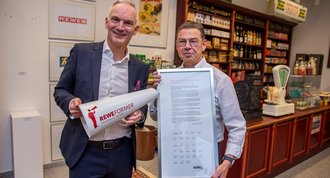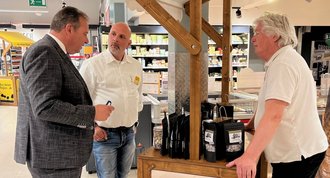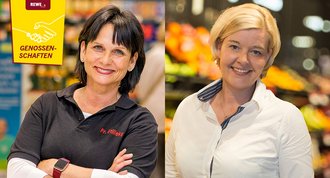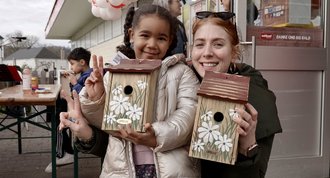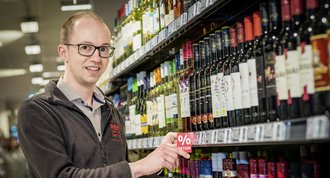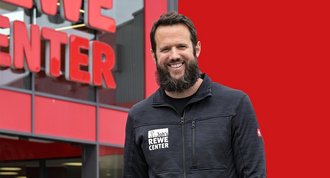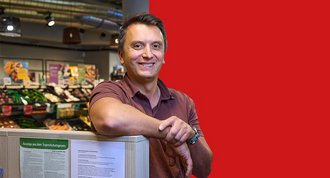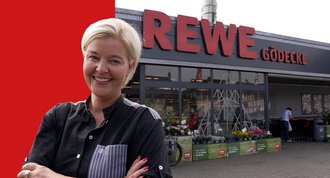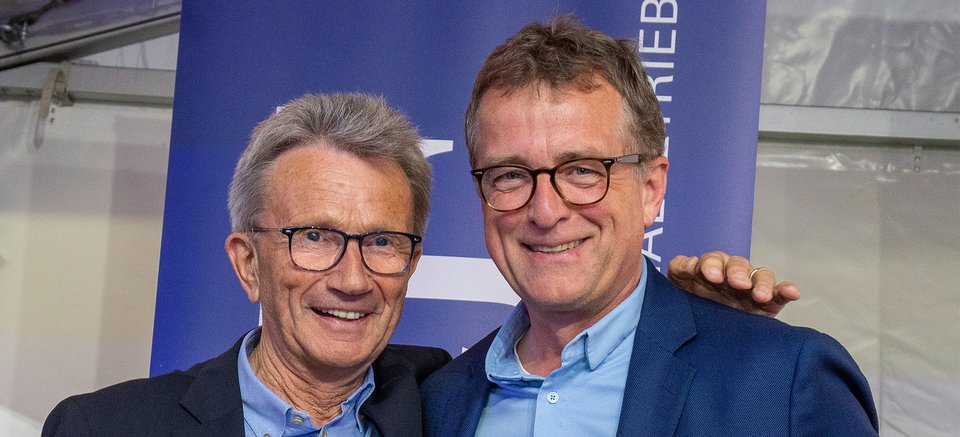
"Changing markets - shaping the future together" was the motto of the most recent MLF conference in Neuwied. However, a prominent person took centre stage.
Change of guard at the MLF: After three decades as Chairman of the Board, Friedhelm Dornseifer (76) has handed over the baton. His successor in the top position of the association of independent retailers is Bochum-based REWE merchant Stefan Lenk (61). It was a farewell not without emotion: "Thank you for allowing me to be your president for 30 years," said Dornseifer in front of 400 participants at the Food Hotel Neuwied. "You are like a second family." Stefan Lenk is the next member of this family. The Bochum-based REWE businessman declared his intention to continue the successful work of his predecessor (see double interview further down in this article).
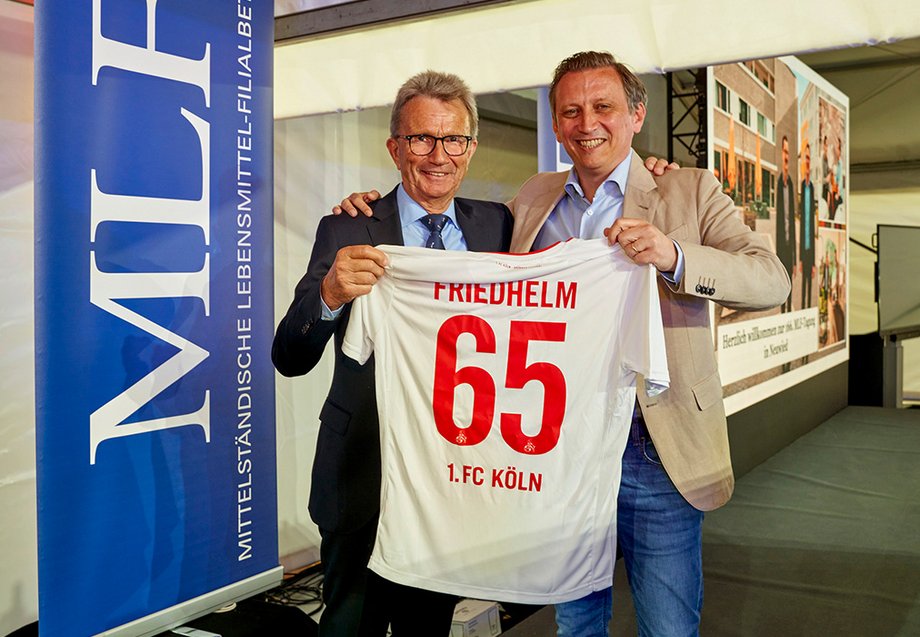 As a farewell gift, REWE boss Lionel Souque presented Friedhelm Dornseifer with a football shirt bearing the autographs of the FC professionals I Photo: Reinhard Rosendahl
As a farewell gift, REWE boss Lionel Souque presented Friedhelm Dornseifer with a football shirt bearing the autographs of the FC professionals I Photo: Reinhard Rosendahl
With its mix of high-calibre presentations and store checks with renowned retailers, the conference offered plenty of inspiration for the business of independent retailers. The two retail bosses Lionel Souque (REWE) and Markus Mosa (Edeka) reported on the current challenges and the resulting opportunities.
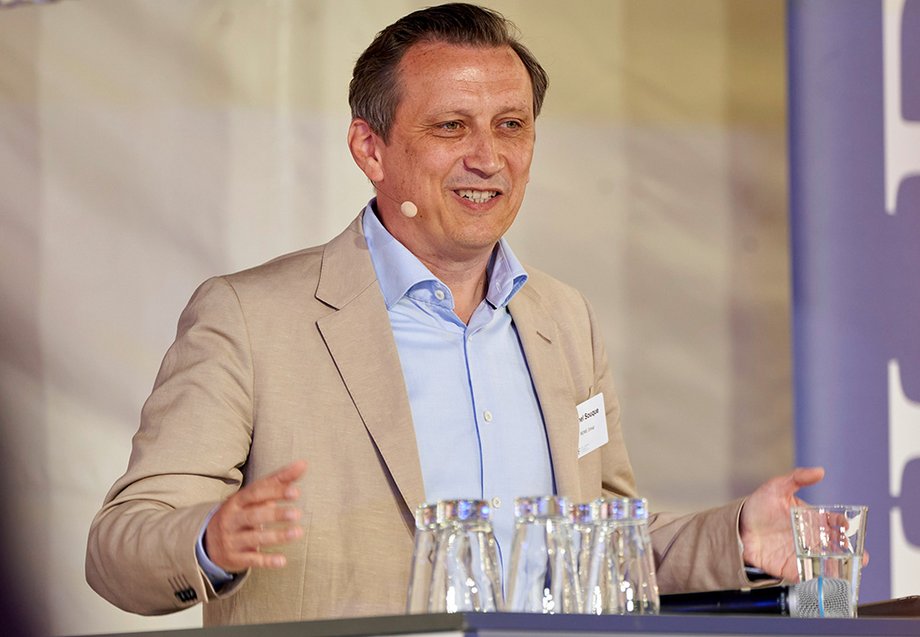 Lionel Souque I Photo: Reinhard Rosendahl
Lionel Souque I Photo: Reinhard Rosendahl
Forward-looking planning pays off for REWE, especially in a difficult environment, Lionel Souque noted. Take electricity procurement, for example: "Thanks to our supplier, EHA, we were able to avoid the enormous energy price peaks and were able to buy at favourable prices," emphasised the CEO.
Souque emphasised REWE Group's pioneering role in Sustainability with a few examples: REWE Group has been purchasing green electricity since 2008 and has been building all new REWE stores exclusively in accordance with green building standards since 2009.
In general, bold decisions have paid off, such as the abolition of plastic bags in 2016. The next milestone is now imminent with the discontinuation of the printed REWE flyer. "We were the first back then, and we want to be pioneers today too," said Lionel Souque, emphasising the company's claim to be a pioneer.
REWE already reaches a large proportion of households in Germany via its online channels. These are good prerequisites for switching from the mass medium of flyers to a personalised customer approach.
The latter is known to be the day-to-day business of REWE retailers who, thanks to their close proximity to customers, know their needs and wishes inside out and are able to fulfil them by fine-tuning their product ranges. Quite a few are building their store into a local brand. Like Michael Glück. His newly renovated REWE store in Rengsdorf passed the store check of the critical expert audience with a few suggestions for improvements to details, but otherwise with plenty of praise, especially for the unique wine department. This pleased not only the owner and company founder but also his son Lukas Glück, who will take over the business at the turn of the year. This is another example of forward-looking company succession planning.
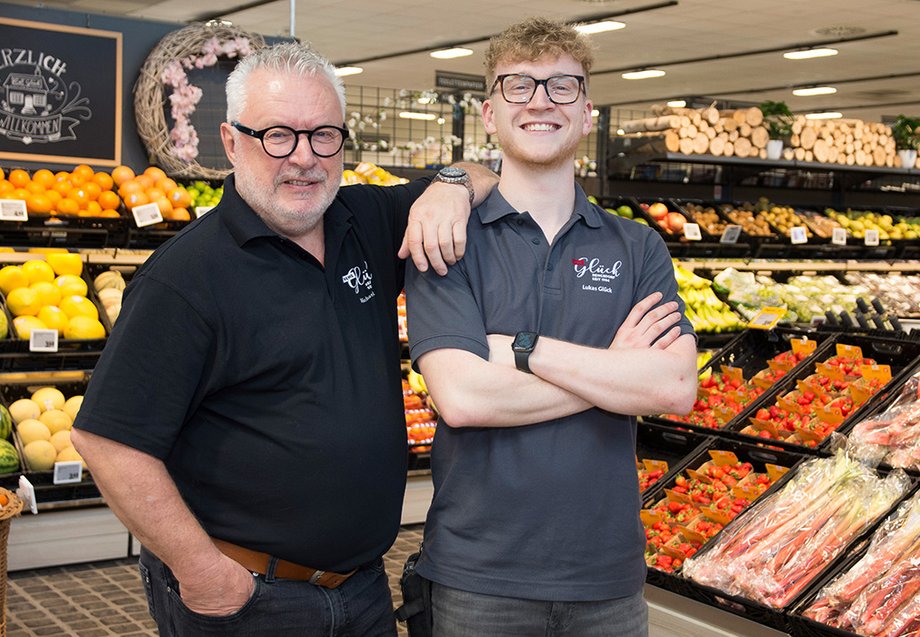 When father and son: Michael and Lukas Glück in their REWE supermarket in Rengsdorf
When father and son: Michael and Lukas Glück in their REWE supermarket in Rengsdorf
Friedhelm Dornseifer and Stefan Lenk talk to one_Gespräch* about role models, friendships, shared values and what this has to do with business success.
one: Mr Dornseifer, 30 years is a really long time. Looking back, what have been the best or most impressive experiences in and with MLF?
Friedhelm Dornseifer: The conferences that we organised ourselves as a company and our trips abroad with the whole group.
one: What characterises the MLF?
Dornseifer: The culture of mutual trust is unique. We exchange ideas and we talk openly. This is crucial in order to be able to learn from each other.
Stefan Lenk: At the MLF conferences, traders also tell each other when something isn't working. In addition, friendships are formed far beyond the conferences, and often even a family bond develops.
one: Mr Dornseifer, where did you find your motivation and energy over this long period of time? After all, you ran a large medium-sized company.
Dornseifer : Many friendships have developed over the years, not only at the conferences, but far beyond that, including holidays together. Working together was the greatest success for me.
„This is the most beautiful office next to the Pope.“ Stefan Lenk, newly elected Chairman of the MLF Board of Directors
one: Mr Lenk, did you have to think long and hard about whether you wanted to succeed him?
Lenk: No. To quote Peter Struck (former SPD Defence Minister, editor's note): I am a party soldier at this point. If I'm needed, I'm available. I was happy to take on this task - as part of a well-functioning, established team.
one: What do you take away from your predecessor?
Lenk: Modesty and the quality of not taking yourself too seriously. Friedhelm Dornseifer was characterised by his team spirit and focused work towards a common goal. Over the 30 years, the number of members has increased just as much as the quality of the conferences. Friedhelm Dornseifer had a knack for selecting personnel. Many members took their cue from him, from his great succession planning in the company and the added value he created. He tried things that others didn't dare to do.
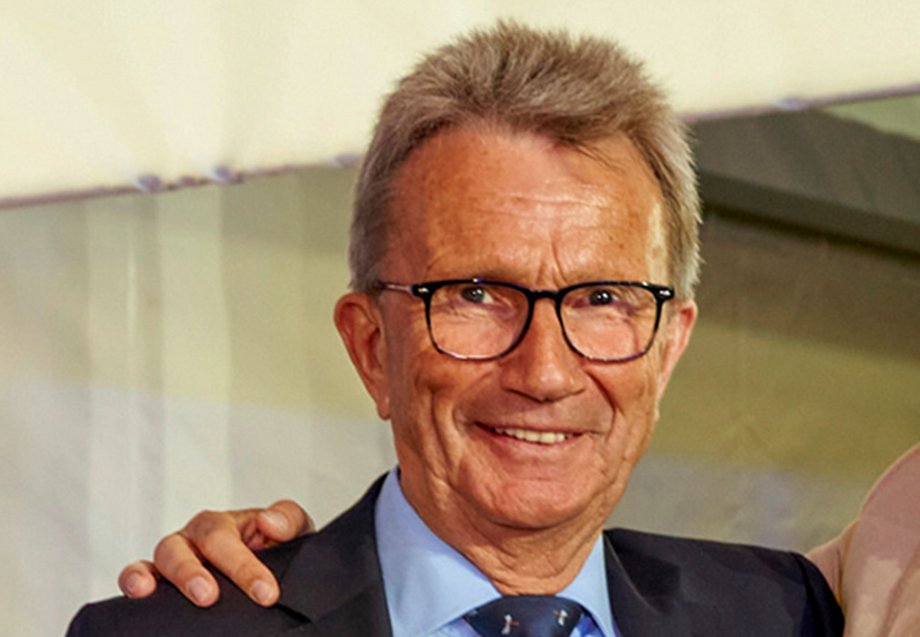 Friedhelm Dornseifer
Friedhelm Dornseifer, 76, founded the family business of the same name in Wenden (Sauerland) in 1965. What started out as two shops with 17 and 20 square metres of sales space has grown into 18 fresh food stores. The self-service specialities from the company's own production facilities are sold in food retail outlets far beyond the region. The company employs a total of 1,200 people. Back in 2010, Friedhelm Dornseifer transferred the company to his two sons Peter and Jörg. The busy entrepreneur finds balance in his hobbies: his Australian Shepherd dog Ivy, his sheep, skiing, hiking in Ireland and watching his favourite football team (1. FC Köln) play.
Friedhelm Dornseifer
Friedhelm Dornseifer, 76, founded the family business of the same name in Wenden (Sauerland) in 1965. What started out as two shops with 17 and 20 square metres of sales space has grown into 18 fresh food stores. The self-service specialities from the company's own production facilities are sold in food retail outlets far beyond the region. The company employs a total of 1,200 people. Back in 2010, Friedhelm Dornseifer transferred the company to his two sons Peter and Jörg. The busy entrepreneur finds balance in his hobbies: his Australian Shepherd dog Ivy, his sheep, skiing, hiking in Ireland and watching his favourite football team (1. FC Köln) play.
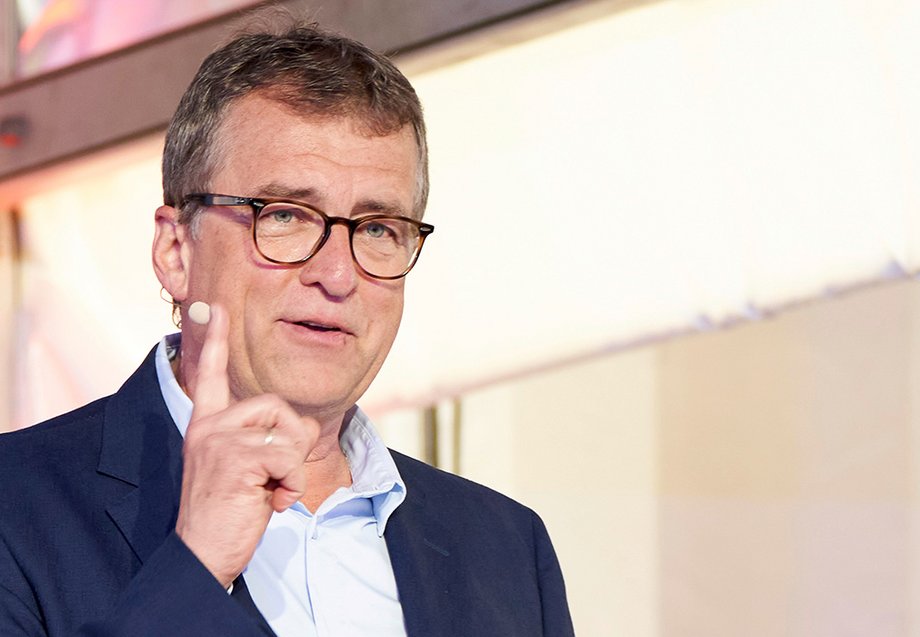 Stefan Lenk I Photo: Reinhard Rosendahl
Stefan Lenk, 61, runs nine REWE stores with 530 employees in Bochum together with his wife Claudia and sons Moritz, Fabian and Philipp. The company boss sets clear priorities: "First the family, then the company, then REWE and the MLF." Stefan Lenk finds relaxation on his favourite island, Sylt, and while walking his dog, he seeks physical challenges while cycling, and he enjoys the full distraction of his VfL (Bochum) matches.
Stefan Lenk I Photo: Reinhard Rosendahl
Stefan Lenk, 61, runs nine REWE stores with 530 employees in Bochum together with his wife Claudia and sons Moritz, Fabian and Philipp. The company boss sets clear priorities: "First the family, then the company, then REWE and the MLF." Stefan Lenk finds relaxation on his favourite island, Sylt, and while walking his dog, he seeks physical challenges while cycling, and he enjoys the full distraction of his VfL (Bochum) matches.
one: Mr Lenk, can you tell us about your agenda?
Lenk: Friedhelm Dornseifer has convincingly led and developed MLF for over 30 years. My aim is to continue this. My credo is the team. I will always try to find new ideas, especially for future topics that we don't even know about yet - always in consultation with my colleagues on the Advisory Board.
one: What do you currently see as the biggest challenge for independent retailers?
Lenk: Employees are a huge issue. We need to get people interested in the apprenticeship profession again. We need to create decent working conditions and decent salaries in order to remain competitive. There are huge challenges on the cost side. And finally, changing customer behaviour towards a price focus is another task.
one: Mr Dornseifer, the promotion and qualification of young talent in the industry has always been a matter close to your heart.
Dornseifer: The MLF Junior Group has been in existence since the mid-1990s and currently brings together 40 young people. MLF is also involved in the Food Hotel Neuwied. The Federal Association of the Food Trade, of which I have been President for more than ten years, is also involved in the Food Academy. We are currently training over 2,000 students across Germany. I myself graduated from this training centre in 1964.
one: Would you recommend young people today to do an apprenticeship in food retail?
Dornseifer: Yes, I am deeply convinced of that. Otherwise, wouldn't I have been the wrong person to head the MLF or my own company?
(*Quoted in part from the trade media Lebensmittelpraxis and Lebensmittelzeitung)
Founded in 1959, the association Mittelständische Lebensmittel-Filialbetriebe e.V. (MLF) currently comprises 111 independent retailers and 53 industrial partners. With more than 1,000 stores , the retailers generate revenues of six billion euros. A firm tradition is the twice-yearly working conference with high-calibre speakers and a tour of the organising markets. The subsequent relentless but usually very fruitful manoeuvring criticism that the experienced retailers face is notorious.

